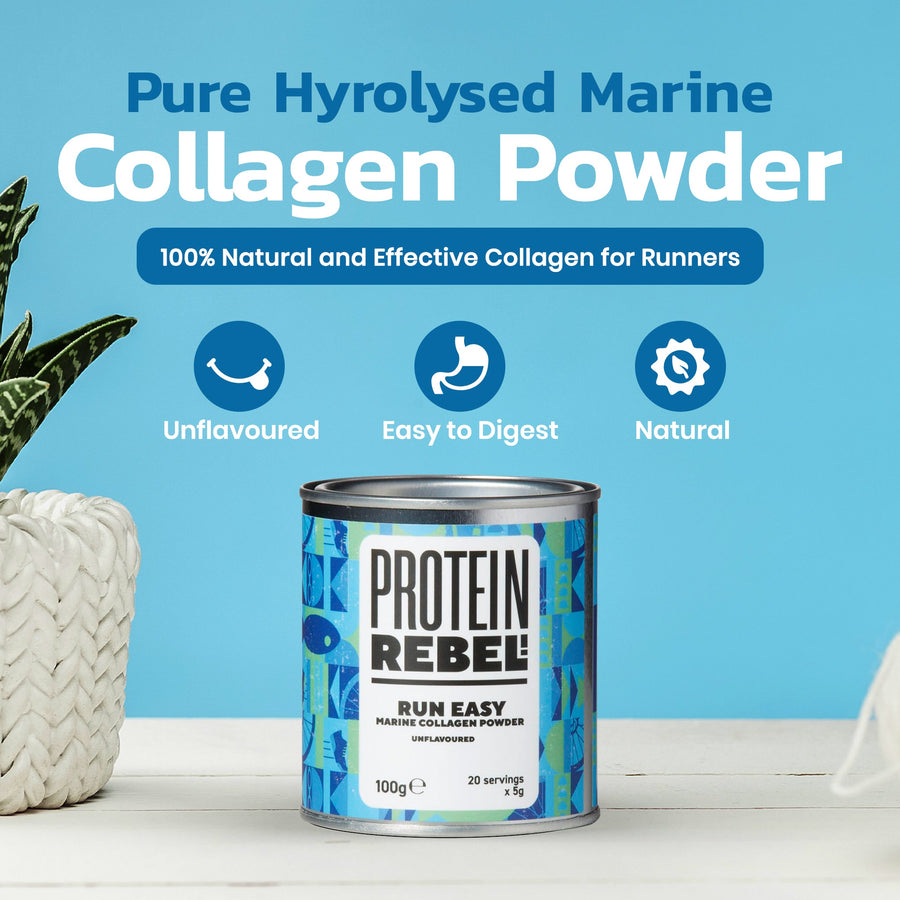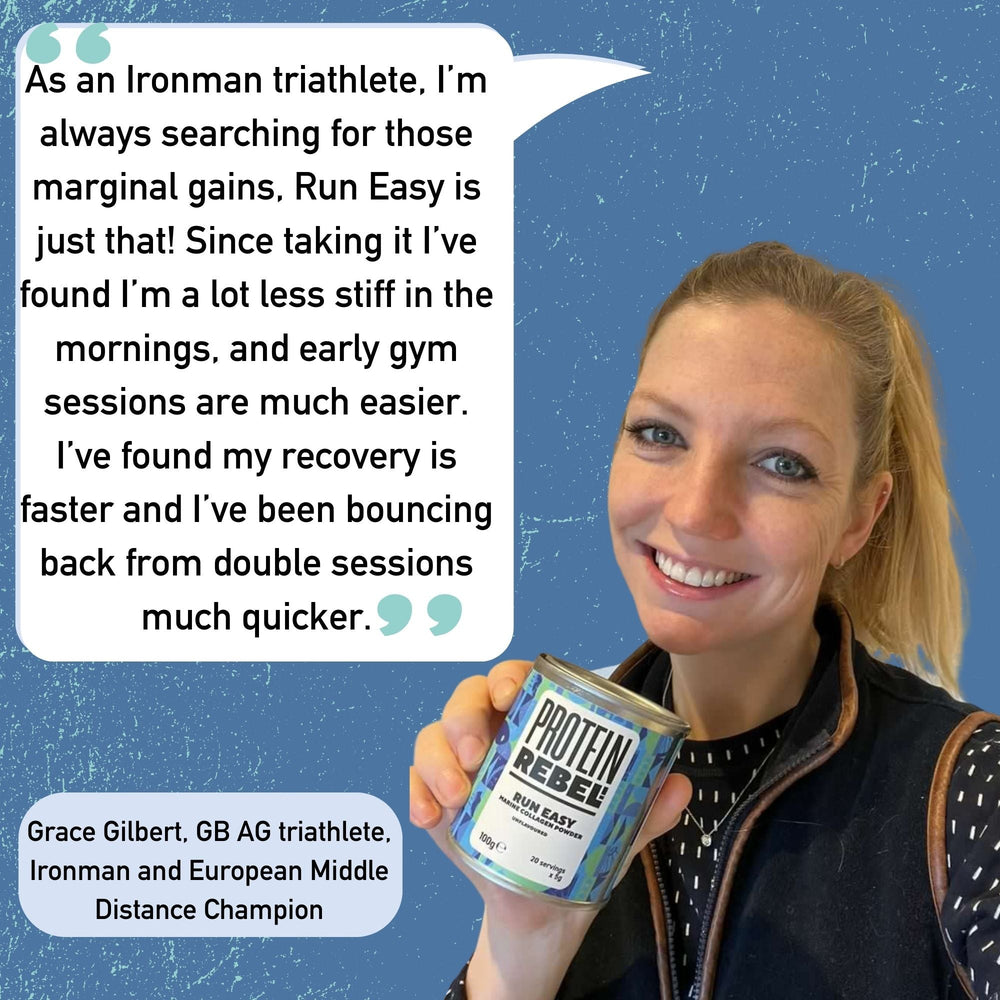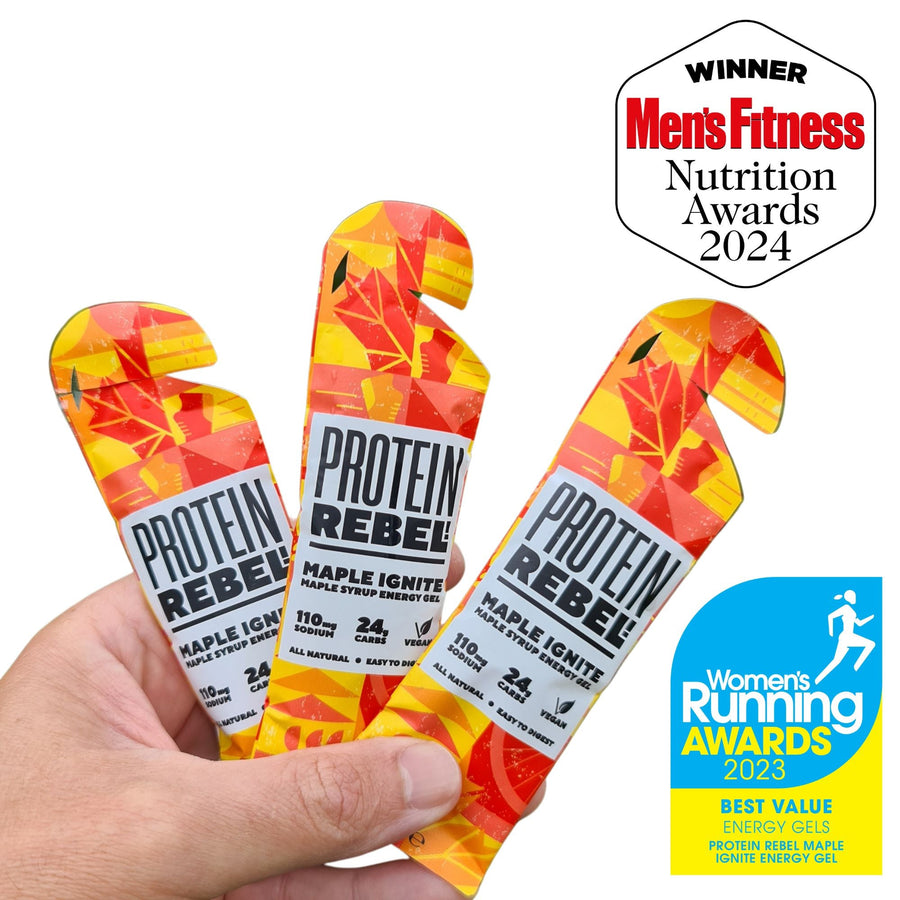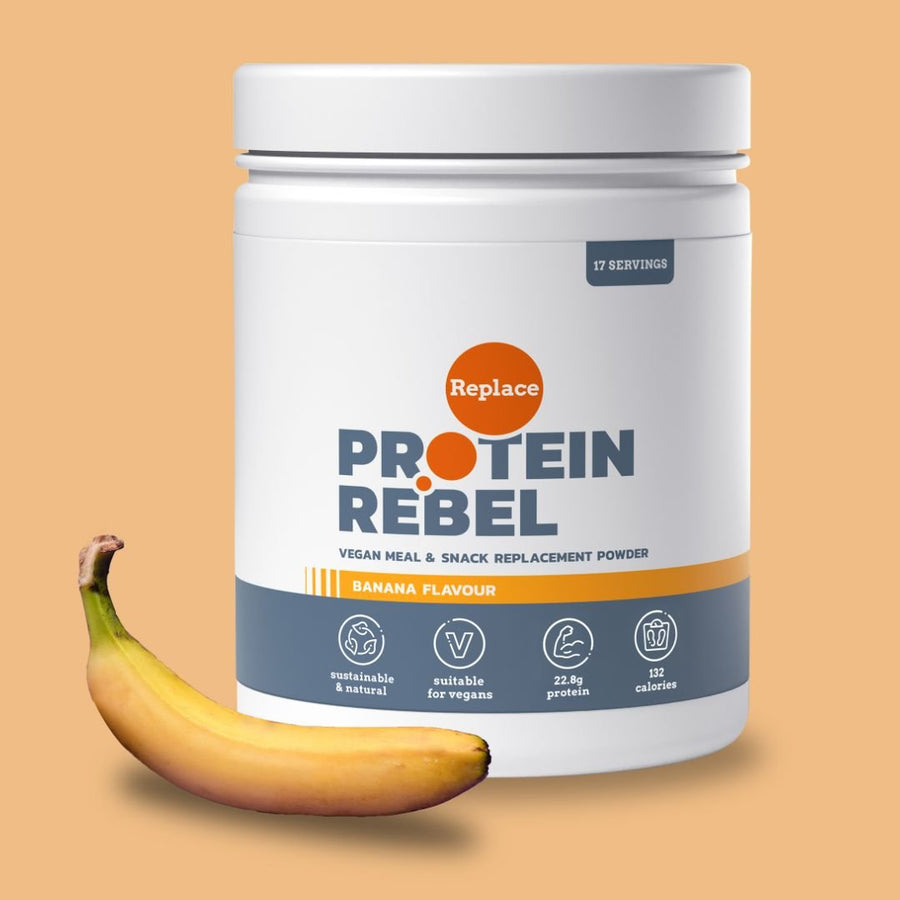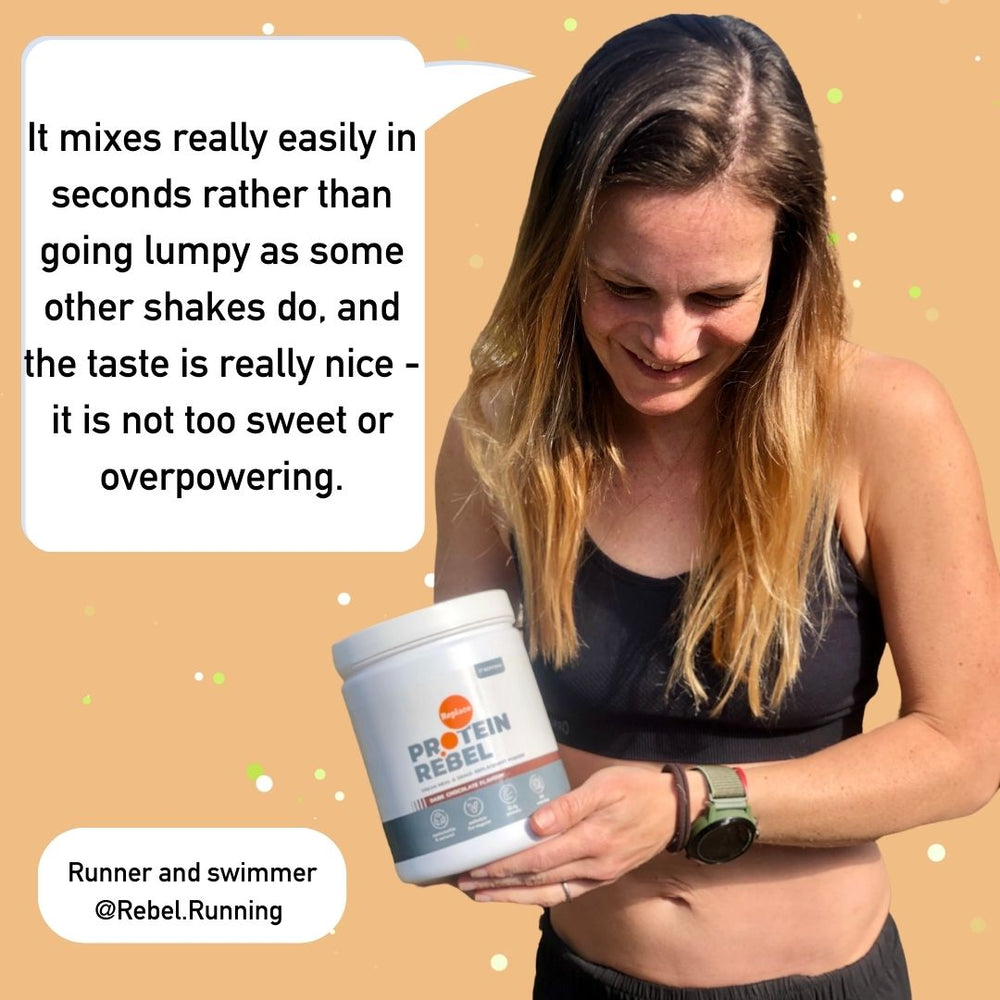What’s the deal with collagen?
Collagen is the principal protein of the skin, tendons, ligaments, cartilage, bone and connective tissue. It’s well known in the beauty industry for its positive effects on making skin, hair and nails look younger, but its effects are more than skin deep. As collagen strengthens joints and muscles as well as ligaments and connective tissues, this makes it a great recovery protein supplement. So what is collagen exactly and what's the best collagen for joints and ligaments? Let’s find out!
What’s collagen?
Collagen is one of the primary proteins in your body, comprising approximately 30% of your body’s protein. It’s made up of a unique combination of amino acids (the key amino acids being proline, glycine and hydroxyproline), which support the health of your skin, muscles, bones, tendons, ligaments and other connective tissues.
As you age, you naturally lose collagen. In fact, from your mid-20s, you will start losing collagen, and from the age of 40, you’ll likely lose 1% of your body’s collagen each year, and this can be further accelerated by the menopause.
The loss of collagen results in the connective tissue losing structure and elasticity reducing strength of your bones and joints. When this starts to happen, aches and pains in your joints start to increase. If you're active, such as a runner, the pounding from running can also put extra pressure on your joints, leading to ailments like runner's knee, and so a collagen for runners is advisable.
In the past, our diets would have included lots of sources of natural collagen like bones, gristle and fish heads. Now, most people prefer not to eat those types of naturally occurring collagen which is why collagen supplements can play such an important role in aiding recovery.
Collagen supplements - Origins and types
Collagen supplements are derived from animals. Genetically modified yeast containing a similar amino acid profile to natural animal collagen is also in development. There is no natural, plant alternative. The three main animal sources are cattle, pigs and fish, and collagen is categorised into 28 different ‘types’ according to where the collagen originates.
Here are the five main types of collagen:
- Type 1 is the most common type found in skin, bone, tendon, ligaments and organs.
- Type 2 is found in elastic cartilage.
- Type 3 is found in muscles, arteries and organs.
- Type 4 is found in the layers of your skin.
- Type 5 is found in the cornea of your eyes, some layers of skin, hair and tissue of the placenta.
Despite various articles indicating otherwise, there’s no proven relationship between the ‘type’ of collagen and where the collagen is deployed by the body. The body will use it where it needs to go!
How much collagen should you take and in what form?
When supplementing with collagen, marine collagen (type 1) and bovine collagen (types 1 and 3) are the most popular. 5g (two teaspoons) of collagen supplement every day has been found to be beneficial to joints and skin after about 6 weeks of daily use. As we are all different, results can vary which is why most sports nutritionists recommend supplementing with 10g a day to see results within a reasonable time frame.
Collagen supplements come in all different forms – liquids, capsules and powder being the most common. However having it as hydrolysed powder (also known as peptides powder) gives you more collagen per serving than liquid and capsules. The benefit of the collagen being hydrolysed is that it’s been broken down into tiny particles and so is far easier to digest and use with food and drinks.
It's also important to be aware of the full list of ingredients in the collagen supplement you choose. Artificial sweeteners, preservatives, colours, flavours, gums and fillers are commonly added, which means that for every 100 grams of collagen supplement, you aren’t getting 100 grams of collagen but instead a mix of collagen and unnecessary extra ingredients. Pure collagen with nothing added is not only better value for money, but it’s also better for your health.
And packaging should always be a consideration. Where possible, choose a supplement packaged in a fully recyclable container, such as a tin which recycles forever. This is far superior to unrecyclable packs, and compostable and biodegradable options.
Which is the best collagen?
Marine collagen and bovine collagen are the most popular types of collagen supplement, but marine collagen has the edge as it’s fast acting and more sustainable. Firstly, it has the smallest particle size among all collagen types, meaning it is easier to digest/absorbs faster than other types of collagen – up to 1.5 times faster meaning it is can quickly get to work on repair and recovery.
Plus, collagen from fish is considered a more environmentally sustainable source of collagen as fish use considerably less land and feed than cattle and pigs. Marine collagen also produces far less greenhouse gas emissions than bovine.
However, it’s important to check that the marine collagen you choose has been tested for heavy metals and other toxins to ensure you’re enjoying the maximum benefits of collagen without any risks to your health.
Choosing a collagen supplement
Collagen supplements are a safe and effective means to boost your collagen levels, but choose your collagen supplement wisely. Marine collagen is faster acting and more sustainable than other collagen sources, but ensure you’re purchasing quality collagen from a reputable supplier.
Want to learn more? Find out why collagen for runners is so important: Can collagen help runners?
Check out our Run Easy marine collagen: Run Easy - Marine collagen peptides powder unflavoured
